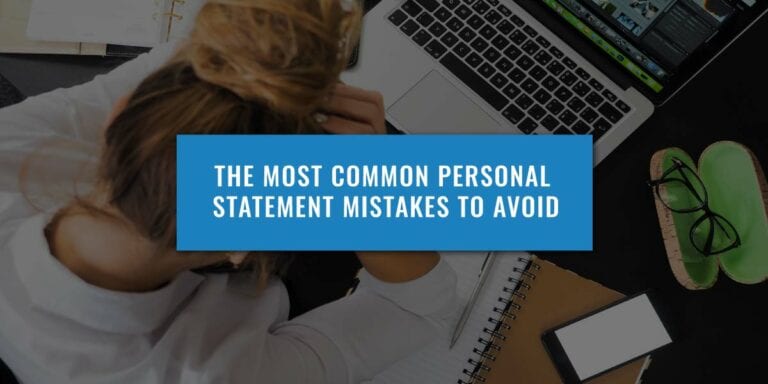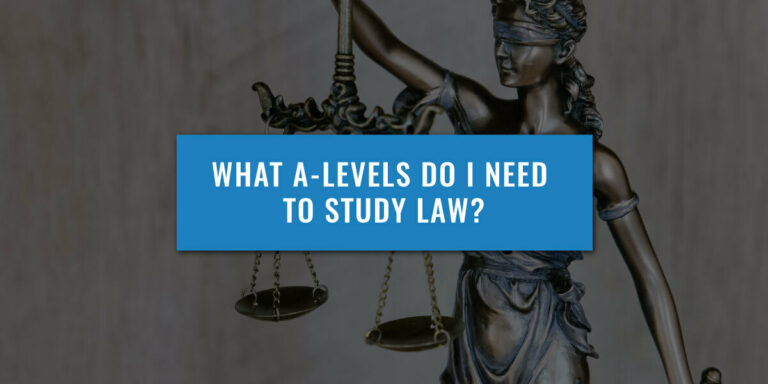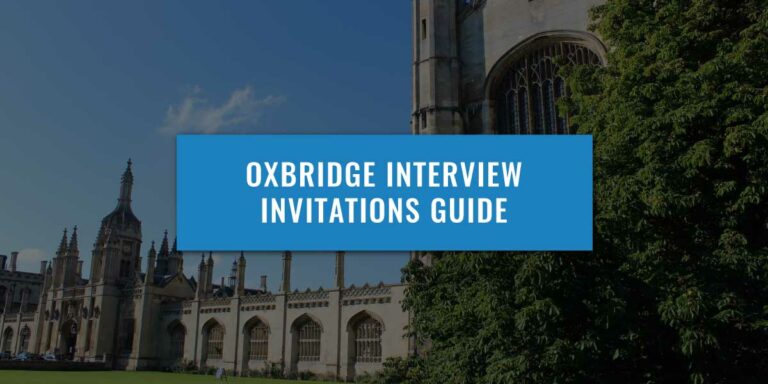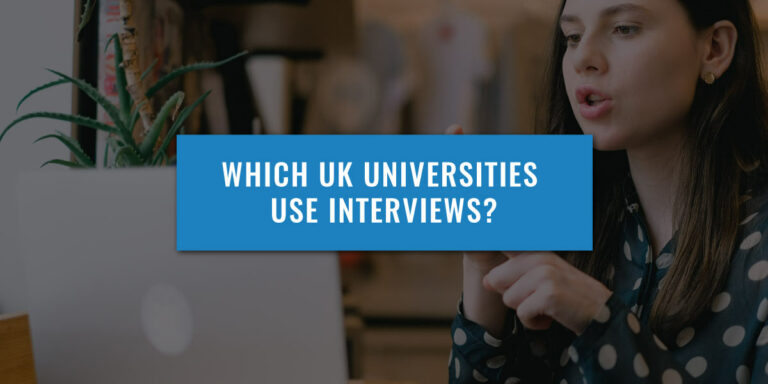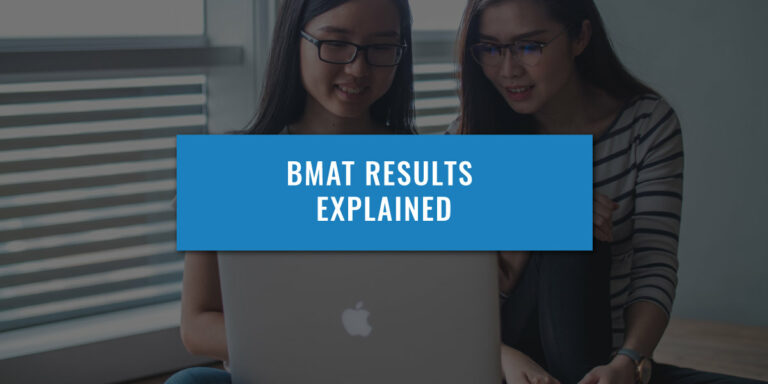The Oxford PPE Interview, is an important step in the application process for candidates.
With just 11% of applicants from 2019 to 2021 successfully gaining a place on the course, it is important to make an impression and stand out in the Interview. Studying a course that covers three subject areas, the PPE Interview is not alike other interviews you may have to attend.
Knowing what to expect will help boost your chances of having a successful interview, which is exactly what this guide is here to help with. We will go over what you should expect to happen during your interviews, how you can impress your interviewers and what sort of questions may come up. Let’s get started:
What To Expect At An Oxford PPE Interview
Most students tend to have an Interview for each subject that makes up the PPE course. Although, this can vary and you can also be invited for further Interviews at other colleges.
What happens in the Interviews themselves can also vary a lot, but candidates most often receive some sort of new material and are assessed by how they respond to it – this may be anything from a graph to an article
What the Admissions Tutors are trying to do is see how you process new information. Be prepared to be questioned on your stance. Don’t worry though, it is okay to adapt it according to new information.
It is not a test of existing knowledge, it is aimed at assessing the candidate’s potential for future development. The Interviews are meant to be like mini-tutorials so the Admissions Tutor is keen to see how you fare in such an environment.
There are four areas that are being assessed during the Interview, which the Admissions Tutor is looking for to determine your potential for future development. These are:
Understanding:
This can be shown in (for example) a candidate’s ability to listen carefully, to analyse problems, to identify the premises and conclusions of arguments, and to express in their own words someone else’s ideas.
Intellectual flexibility:
This can be demonstrated by (for example) a candidate’s willingness to consider alternative views, and readiness to respond to problems and criticisms.
Critical thinking and problem-solving:
This can be shown in (for example) a candidate’s ability to adopt logical and critical approaches to problems, to critically assess arguments, to identify good and bad reasons for believing a particular claim, to assess relevance, and to think independently.
Communication:
This can be demonstrated by (for example) a candidate’s willingness to express ideas clearly, to give considered responses to questions, and to address the point under discussion instead of veering off topic.
Oxford only Interview people they feel have a realistic chance of getting in and being successful on the PPE course, so being invited to attend is a massive accomplishment.
Don’t wait until you get invited for an Interview to start your preparation, getting started early will put you on course for Interview success.
Waiting to be invited for an Interview means you won’t be left with enough time to prepare for your Interview. Check out our Oxford PPE Interview Programme to gain essential Interview preparation.
How To Prepare For The Oxford PPE Interview
Candidates are not expected to have studied Philosophy, Politics or Economics at school, but they should be interested in the subjects and be prepared to put their minds to problems of PPE presented to them.
Throughout the Interview, the Admissions Tutors are looking for commitment and motivation to the course as well as evidence of academic potential. They want to see that you have really engaged with the three subjects and have a passion for them.
A key recommendation is to obtain a reasonable grasp of the workings of the social and political world in which we live. Keeping up to date with current affairs by engaging with the news will be crucial to a successful application.
As you are not expected to know about these subjects before applying, being able to demonstrate an interest in ideally two of the subjects through extra-curricular reading will show this desire to study PPE.
Wider reading shows that you are really engaged with what the course entails, especially when you have not studied them before. Oxford recommends some introductory texts for each discipline which acts as a solid starting point for your preparation.
Additionally, it is important to find out what interests you as an individual. This will not only make sure that PPE is the right choice for you but exactly what you are interested in. This will make it easier to communicate your passion for the subject and will make you stand out as an individual.
What are Oxford PPE Interview Questions like?
The questions are designed to be difficult to give you the chance to show your full intellectual potential. The Admissions Tutors will help guide you to the right idea, that is if you provide them with the information to guide. The Interview is your opportunity to show your creativity, analytical skills, intellectual flexibility, problem-solving skills and your go-getter attitude.
Making mistakes is not a bad thing if you can show that you have addressed a mistake and attempted to revise your argument upon the realisation of more information. By doing this, you are showing a crucial to getting through essays and the tutorials at Oxford.
There are no set patterns to the questions you can get asked, most questions will focus on a topic for which it is possible for any individual to have an opinion without previous knowledge of the area. This is to test the way you think about a topic and to test whether you are able to apply your own experiences and knowledge to an unknown subject area.
Which view you may take, do not be surprised to see the Admissions Tutor take the opposing and raise objections. This does not mean you have made a mistake. Be prepared to argue in defence, but also be willing to change position if you realise that it has become indefensible.
PPE relies strongly upon the ability to construct an argument based on the information provided. Many questions are related to society today and may require the candidate to be familiar with current affairs and big events in the news.
Questions also have recurring themes that appear because they are important for social sciences: legitimacy and role of government, human rights, poverty, feminism, international institutions, the purpose of education and different educational systems, voting systems, inequality and social classes.
Philosophy PPE Interview Questions
Before your Philosophy Interview, you will be given some pre-reading which will consist of four or five questions. These may be puzzles, arguments, or imaginary scenarios to think about. Sometimes, there may be a right answer, but in general, it is preferred that the problems will have a number of different approaches that are equally reasonable.
This pre-reading is not a test, you will not be given a mark for your responses to the questions. Rather, the point is to introduce you to topics that can then be discussed in the Interview and allows you and the Admissions Tutor to cover more in the limited time you have together.
Primarily, the focus of the Interview will be the pre-reading topics though expect to be asked questions on your Personal Statement. The Admissions Tutors are looking to see you have the ability to understand a problem, think clearly and logically about it, explain your thoughts, and respond intelligently to considerations for and against.
Let’s take a look at a couple of example questions for Philosophy, starting with an incredibly general one:
Q. “Do you think you know anything?”
This question focuses on the branch of philosophy called epistemology which concerns the theory knowledge. It is highly likely you will get a question similar to this one or which touches on some of the ideas you will need to consider to answer this question.
There are a lot of ways you may consider answering this question, the main thing to remember is that you will not be expected to have an in-depth knowledge of epistemology. The Admissions Tutor is just looking to see how you approach such a question.
An example of a bad answer to this question is as follows:
“No, it is not possible to know anything because even though I think I know something, how do I know that I know it?”
The above is a bad answer, as whilst the candidate does begin to consider an interesting concept in philosophy, they do not explain what they mean by “how do I know that I know it?” This is a commonly heard phrase that has little meaning if you do not go on to explain what you actually mean. Therefore, this makes this response superficial.
In comparison, a good response from a candidate would be as follows:
“I’m sure we ‘know’ some things, but the problem comes in trying to prove that we know anything, and in trying to define what knowledge actually is. For example, I know that this is a chair, because I see it, and it looks like a chair. However, how do I know that chair-like things which are perceived are really chairs? Just because I see it, doesn’t mean that it is really there, or that it is really a chair. I have no proof that what I perceive is knowledge. We might, instead, consider non-perceptual forms of knowledge, to see if we can ‘know’ anything. We can use deductive reasoning to argue that 2+2=4. I know that 2+2=4. However, these numbers are purely abstract and are only assigned by humans. I, therefore, don’t really have any proof that 2+2=4, beyond the fact that I have been taught that this is the case, and other people assume it to be so. However, this cannot be a satisfactory account of what it is to know something. Therefore, whilst I want to say that we do ‘know’ some things, I think it takes a lot to prove that we do.”
The above is a good answer as it really considers what the question asks. It is significantly less superficial than the bad answer and considers different approaches to the problem of knowledge – especially how it can be possible to define knowledge.
Although the candidate does not use overly technical terms, this is not expected of them. They have noticed a difference between knowledge of things that we perceive (a kind of inductive knowledge) and deductive knowledge, which shows that they are thinking deeply about the question
Another example of a question that could be asked to you about philosophy is demonstrated below:
Q. “How would you go about assessing the number of people in here?”
This question focuses on the concept of personhood and identity. It is the type of question which might throw you so make sure that before you tackle it, you sit back and think about what the Admissions Tutor is really asking you. For the sake of this example, there are three people in the room.
An example of a bad answer to this question is:
“There are three people. There cannot be more than 3 people, as I can only see three. There cannot be less than three, because I can see three. Anyone who thinks overwise is wrong.”
This is bad as it fails to consider any other potential approach to the idea of personhood. The candidate assumes that the way we tend to count people is inherently true without questioning this at all. It also becomes argumentative in a way that can be tempting if faced with a difficult question, which is particularly unhelpful in a philosophy Interview.
You need to show that you are willing to be persuaded to consider other potential solutions, rather than immediately shutting yourself off from them.
Whereas a competent candidate would likely give an answer such as the one that follows:
“We would usually say that there are three people in this room. However, that assumes that the other people in this room are in fact, people. We do not really know this. For example, you may both be philosophical zombies [i.e., someone who looks and acts like a person but doesn’t really have a conscience or soul]. I don’t know that you have a conscience, so, assuming that being a person is in some ways defined by the existence of a conscience, I don’t know whether either of you really are “people”. If we think about what defines what it is to be a “person”, we will find it hard to prove, in fact, that any of us have the features which make us by definition a person. For example, we might instead claim that a person is an entity that has free will. However, we don’t really know that we have free will. We may be controlled by a God or something else to perform the actions we do and be programmed to think that this is our own free will. Therefore, we cannot truly know how many people are in this room.”
This candidate has considered a range of approaches to the question of what it is to be a person. They do not close themselves off to considering different philosophic arguments and instead embraces a philosophical debate.
They have also demonstrated that they have a basic understanding of core philosophical ideas, such as free will, and the idea of philosophic zombies. As already mentioned, that knowledge is not expected of them.
Download our FREE 90-Page Interview Starter Guide
Our 90-page E-Book is filled with expert Interview Advice, common interview questions and first-hand interview experiences from successful Oxbridge applicants.
To access all this for free, just enter your name and email address and you’ll be sent the guide directly to your inbox.
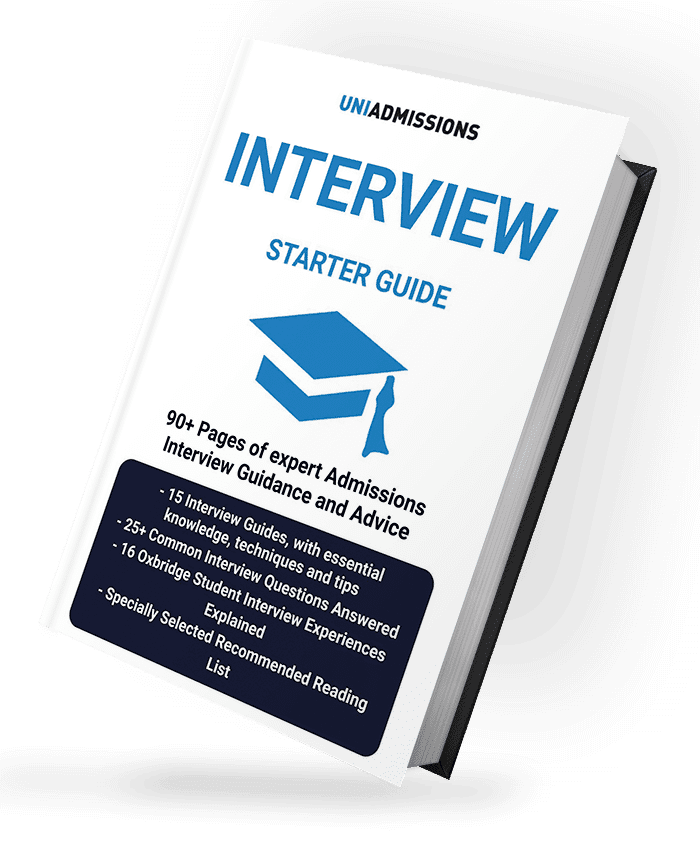
Politics PPE Interview Questions
Moving onto the Politics Interview, you need to be ready to be challenged on your views and to remember that more often than not there will be no right answer. You will have to explain your reasoning and justifications as that is what the Admissions Tutors want to see. Doing so will prove your capability to succeed in PPE at Oxford.
You may also be given some ‘puzzle questions’, or be asked to consider a few political scenarios. The Admissions Tutor wants to see how you think such puzzles through. As already stated, you need to be able to explain your reasoning and justifications. Being able to do this will prove your capability to succeed in the course at Oxford.
An example of a question you are likely to be asked is:
Q. “What are the main reasons for persistent unemployment in the UK?”
Here is an example of a good answer to the question:
“I think that people are often tempted to look for simple explanations behind complicated issues. This is why extreme political parties are so successful: they provide the population with easily identifiable scapegoats such as ‘the current government’, ‘immigrants’, or ‘the EU’, and blame them for every economic and social problem. In reality, issues such as unemployment have many reasons. One of them could be the discrepancy between supply and demand: what type of jobs people are prepared for at schools and universities, and what type of jobs are offered on the market. For instance, in Scandinavian countries, when an unemployed individual cannot find work for a certain period of time, he is offered courses that allow him to perform a different type of work, with more demand. Another reason could indeed be globalisation, with the international economic crisis, and many companies moving abroad to reduce costs. However, this does not justify oversimplifying the issue by blaming solely external factors such as foreigners or international organisations. Instead, efforts should be made to better adapt the national system to the realities of the globalised world.”
This is a very strong answer as it is a balanced, well-argued answer regardless of the candidates political or moral stance. They stay away from generalisation and normative statements based on little or no evidence.
In comparison, a poor applicant might refuse to engage with a question of which they have little previous knowledge. Alternatively, they may make sweeping generalisations or provide an exhaustive list of factors without explaining them.
Admissions Tutors like to ask questions relating to any further reading you may have done, as it shows your dedication and passion for the subject.
Therefore, a common question relating to this is:
Q. “Tell me about some political texts that you have read.”
A fairly straightforward and obvious question, which is why these are the ones not to slip up on.
Good candidates will try to go beyond simply giving factual knowledge on a text studied. They will try to come up with a critical approach showing a certain degree of independent thought or problematise the term ‘political texts’:
“I have looked at some political theory texts, such as Plato’s Republic. In this text, the author is describing a perfect political system, an ideal city led by a philosopher-king. He also talks about other flawed political systems, such as tyranny or democracy. I think that this text is very interesting and useful for understanding political systems from the past, and has also inspired other, more recent authors. However, it is important to note that Plato writes from the perspective of Ancient Greece, and many of his concepts are outdated. I think that the term ‘political text’ could also apply to other types of documents, for example, party programmes, but even literary fiction. I recently read Bulgakov’s Master and Margarita, a novel with fantasy themes such as the devil and witchcraft, written in the Soviet Union. Its focus on religion and the occult was also a hidden critique of the atheistic Soviet society. Similar things could be said about Animal Farm or 1984.”
As for a poor candidate, they might panic if they have not studied texts of political theory in school, instead of making the best of it by trying to come up with different types of political texts.
Alternatively, the candidate might opt for dumping a lot of factual information on a text instead of showing their understanding of it or demonstrating a critical perspective.
Economics PPE Interview Questions
In Economics, you will likely be asked one or more of these ‘puzzle questions’. Do not feel like you cannot answer the questions, they are supposed to be difficult. You are not expected to land on the right answer straight away. The Admissions Tutor is wanting to see your thought process, so make sure to verbalise your thoughts rather than doing it in your head. By speaking aloud, you may also be provided with hints to guide you to the right answer quicker.
This does not mean you are doing bad, it is a way for the Admissions Tutors to see how you would react to having them teach. After all, the Interview is meant to a resemble a tutorial which is the teaching method at Oxford. Also, there is no need to worry if you only get one of these types of questions. The Admissions Tutor know some of the questions take longer to answer than others and would not expect to ask more than one.
An example of such a question follows:
“You run a sweet shop next door to a rival sweet shop – you’ve both been able to drum up considerable loyalty in your customers who will flat-out refuse to shop anywhere else, provided you keep your prices below a tenner per sweet.
You each have 10 such loyal customers – but there are 100 potential customers on the street who don’t care as much and will buy from whoever is cheapest.
Q. With this in mind, at what price point would you have to reach for it to be more valuable to sell everything for ten pounds?”
This question relies on you being able to do relatively simple maths. However, the phrasing uses a lot of words that may throw you off. For these kinds of wordy questions take a breath and think about what you need to infer from the question in order to get to the answer.
A bad candidate will state the answer without showing workings – you will be provided with paper to write on so make sure to show the Admissions Tutor. They will make assumptions without stating them.
Whereas a good candidate will state their assumption and will likely discuss afterwards how the answer will differ if marginal cost were greater than zero:
You will need to consider which numbers are useful from the question for working out your answer. Sometimes interviewers will throw some numbers in which are not useful. In this case, however, all numbers given are necessary to reach the solution. Note that the loyal customers will not buy above £10, but they will buy at £10. As the business is seeking to maximise profits, if it opts for the price of the loyal customers, they should charge £10. You should also discuss whether the non-loyal customers will also buy at £10. However, as you are in competition, once you reach the price at which it is no longer profitable to undercut your competitor, if you raise your prices to £10, then the non-loyal customers will always go to your competitor. Firstly, you want to show that it will be more profitable when 80 times the price is less than 10 times £10:
Remember, that you should use the less than sign, rather than the less than or equal to sign. This is because the question asks you to show when it will be more profitable to sell at £10, not when it will be more or equally profitable. This is an easy mistake to make. It is worth also mentioning that £1.25 is a game theory equilibrium. Therefore, it is likely that both competitors, in the long run, will sell at this price.”
Another question that could come up in your PPE Economics Interview is:
Q. “Do you feel that economists trust models too much?”
This is a fairly broad economics question that will ask you to consider the merits of the way we usually approach economics, and to discuss behavioural economics and the fairly recent academic move by behavioural economists away from relying on models.
Here is an example of a bad answer:
“No, because economic models allow us to measure the economy, and therefore it is good that we have economic models.”
This is a bad answer because the question does not ask the candidate where economic models are good, but whether economists can rely too heavily on them. Arguing that there is a huge amount of merit to economic models is easy to discuss, whilst also discussing there are some cases in which economists rely too heavily on these models. Instead, this candidate fails to engage properly in the question.
Now here is an answer a good candidate would give:
“Models serve an important role in economics, both for helping us to try to measure the economy and for predicting what may happen in the future. It helps to guide policy in order to aim towards good economic consequences, such as seeking high employment and economic growth. However, there are situations in which economic models will fail to properly predict what will happen in the economy, and thus, what policymakers should do. This usually happens, either because humans act in unexpected, irrational ways, or because some other thing happens which is unexpected.
For example, even our most basic demand/supply models predict that the economy will follow certain rules to set the price and quantity of goods in an economic system.
However, just because there is an increase in supply, which, as the models would posit, means that there should be a decrease in the price of a good, doesn’t mean that humans will automatically adhere to the new price. There may be delays in shifting to the price, or they may not change at all, due to consumer habit or other behavioural reasons. As well as this, surprise events may occur for which economists are unable to use models to prepare and plan policy.
This happened with the coronavirus pandemic. Economic predictions which followed from models became invalidated by the sudden escalation of the coronavirus situation. Economists, in situations such as these, must be prepared to move away from the models and to adapt to new situations, as well as shifting focus towards examining the behaviour of how humans interact in new economic situations such as this.”
This answer is good as the candidate engages with the question. In doing so, they do not jump straight into saying that economic models are always good or bad and instead gives some examples of when they cannot be relied upon.
This adds nuance to the argument, as well as showing knowledge of current affairs and how recent events may affect the economy.
With that being said, not all questions are strictly related to just one of the three topics. Sometimes there will be some overlap and sometimes the question may not be linked to any of them, instead delving into more personal aspects of your life.
This next one is a good example of a question that would fall under both Politics and Economics:
“How would you judge the extent of the differences between a capitalist and a communist system?”
This question allows the candidate to demonstrate their understanding of the different political and economic systems and critically analyse the difference between the two. Being able to demonstrate real-world examples where possible, would be beneficial when answering a question such as this.
An example of an answer you should not giving is below:
“Capitalism is an economic system in which goods, property, and businesses are owned privately, whereas communism is an economic system in which they are owned by the state. Therefore, the two are different.”
A bad answer to this question would demonstrate a lack of critical analysis of the difference between the two economic systems. It is perfectly fine for the candidate to argue that they are different, but failing to engage in both sides of the argument or clearly define why they are different will significantly weaken their answer.
Now here’s an example of a good answer:
“Capitalism, it is standardly claimed, is an economic system in which goods, property, and businesses are privately owned, and resources are therefore distributed through market mechanisms.
Communism is an economic system in which these are owned by the state instead, and so resources are distributed by the government.
The main difference between these, therefore, is the fact that, in communism, private property doesn’t exist, and so the allocation of resources does not depend upon the free market. However, this picture is complicated by the existence of mixed economies. These exist when some things are owned and distributed by the government, and some by the free market. Most countries that have a mixed economy are considered capitalist countries, on account of the fact that they have private markets.
The standard definition is in fact not that suitable for capitalism because it is impossible for nothing to be owned and distributed by the government if a country has a government. Therefore, there is at least some way in which all capitalist countries allocate resources through the government unless they are an anarchist country, which is an oxymoron.
Therefore, a line must be drawn in order to determine at which point a mixed economy is a capitalist country, and at which point it is communist. This is what causes people to argue that they are not so different. However, I believe that the existence of any private market at all makes a country capitalist, and, therefore, capitalism does maintain a fundamental difference to communism.”
A good answer to this question would be able to engage with both sides of the argument and would reach a persuasive conclusion. The candidate would also engage critically with the standard definitions of capitalism and communism, in a way that enhances their argument. It is also essential to remember that it is not just the answer the Admissions Tutor wants to hear but your thinking to have gotten there in the first place.
Conclusion
Overall, take an interest in political and social issues, read around the subjects to find out what interests you. Be prepared at the Interview to engage with new concepts and material, thinking critically and responding to what the interviewer gives you.
As long as you can demonstrate your passion for the subjects, even if you have never studied them before, will ensure the Admission Tutor knows PPE is the right choice for you.
Our expert tutors will guide you to Oxford PPE Interview success and triple your chances of success.
With over 95 hours of guided study (including One-To-One Tuition, Mock Interviews, Intensive Courses and Comprehensive Materials), our expert Oxford PPE Interview support truly gives you an advantage that can make the difference between an offer and rejection.
Discover our Oxford PPE Interview Programme by clicking the button below to enrol and triple your chances of success.


